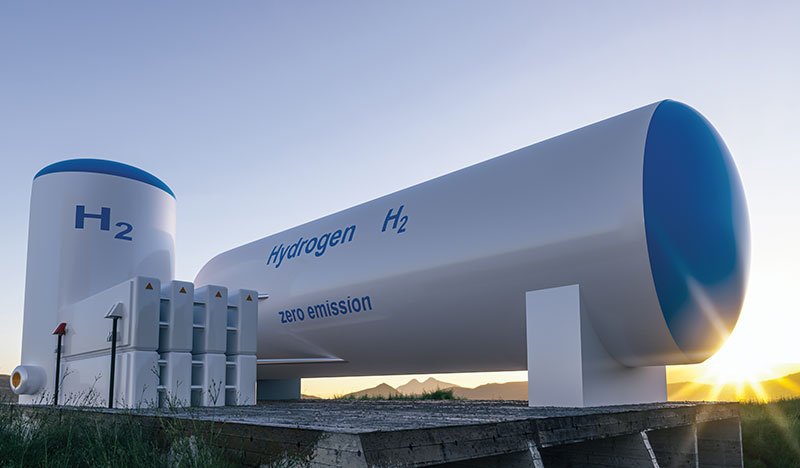Pipeline Research Council Establishes Emerging Fuels Institute
Pipeline Research Council International (PRCI) recently approved the establishment of the Emerging Fuels Institute (EFI). The EFI will provide PRCI members the opportunity to execute the research needed to ensure the safe transportation and storage of the next generation of energy, such as hydrogen, renewable natural gas (RNG), and other potential gas and liquid fuel sources that will help meet the world’s energy needs while reducing the impact to the environment.

“The current pipeline infrastructure will play a key role in the energy transition,” PRCI President Cliff Johnson said. “PRCI and its members are working to ensure the safety and integrity of the pipeline system for today and tomorrow.”
There are many technical challenges that need to be addressed for the next generation of fuels, and the EFI will play a key role in assisting the industry to safely manage the changes in transporting and storing these products. Areas the EFI will initially focus on are: 1) how to ensure the integrity of inspection tools with new fuels; 2) how to address the challenges associated with storing hydrogen using current assets; and 3) what advancements in materials, design, and processes are needed for retrofitting the pipeline systems for transport.
Another key part of the efforts to move to a low carbon future is to ensure that the current pipeline infrastructure is as efficient and safe as possible. Recently, U.S. Department of Energy Secretary Jennifer Granholm noted that “pipe is the best way” to transport fuels. To ensure that this vital infrastructure is efficient and minimizes the environmental footprint, PRCI is continuing to focus on a number of key research areas that include: 1) enhancing/strengthening key inspection tools, processes, and people; 2) developing more responsive tools to detect leaks from ground, aerial, and space; 3) preventing leaks from occurring through enhanced design, construction, and monitoring practices; and 4) creating greater efficiency and reducing methane emissions. Within these four research areas, PRCI has identified three strategic priorities to accelerate research results for improvements in pipeline integrity through detection and identification of cracks as well as mechanical damage, and the reduction of greenhouse gas emissions.
PRCI is looking forward to working closely with our members to continue ensuring the safety and resiliency of the global pipeline infrastructure to transport and store energy.
“Developing research to enable our members to attain zero failures is a driving force within PRCI. We are building on our almost 70 years of history to assist our members and the industry as we work towards a low carbon future through the transport and storage of emerging fuels,” said Walter Kresic, PRCI Executive Board Chair. “It is critical that we work to enhance our current pipeline infrastructure as we work to ensure the safe and resilient transport and storage of emerging fuels. The creation of the EFI enable our members and the industry to make the transition to the next generation of energy a reality.”
Related News
Related News

- Keystone Oil Pipeline Resumes Operations After Temporary Shutdown
- Freeport LNG Plant Runs Near Zero Consumption for Fifth Day
- Biden Administration Buys Oil for Emergency Reserve Above Target Price
- Mexico Seizes Air Liquide's Hydrogen Plant at Pemex Refinery
- Enbridge to Invest $500 Million in Pipeline Assets, Including Expansion of 850-Mile Gray Oak Pipeline




Comments